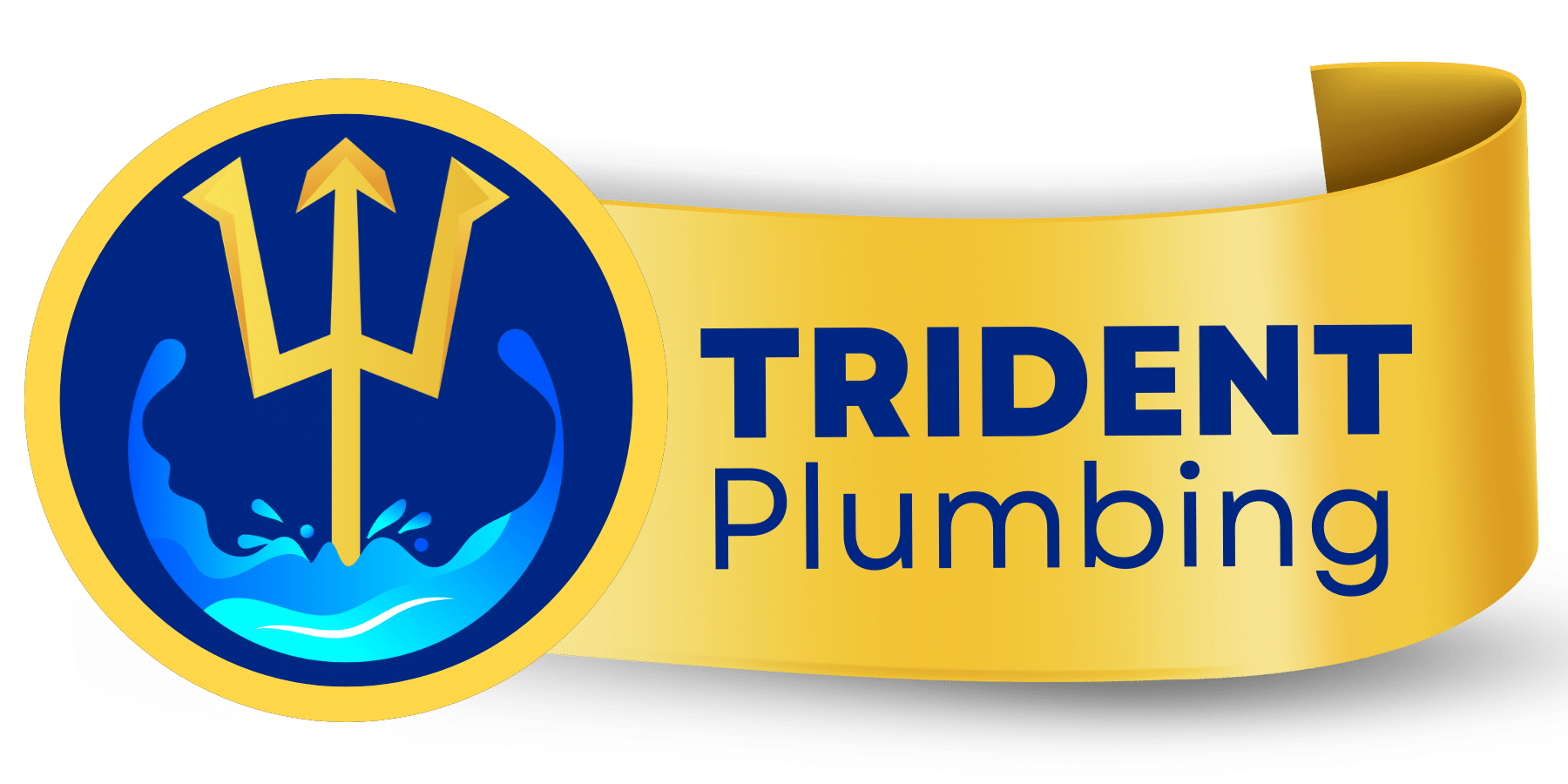There are plenty of things we know we shouldn’t flush down the toilet that can clog things up. Kids are especially good at learning this lesson the hard way! However, there is still some legitimate confusion over other questionable items that seem flushable, but are not. So we decided to stage a little experiment to show what you can, and cannot flush safely.
The Experiment
We placed four different items that are commonly flushed in water. We examined these items after 2 hours, 4 hours, and 24 hours to determine just how much they break down.
The Materials Tested
- Toilet paper
- Tissues
- Baby wipes
- Flushable wipes – we used a name brand that specifically stated that it was “plumber approved” on the label
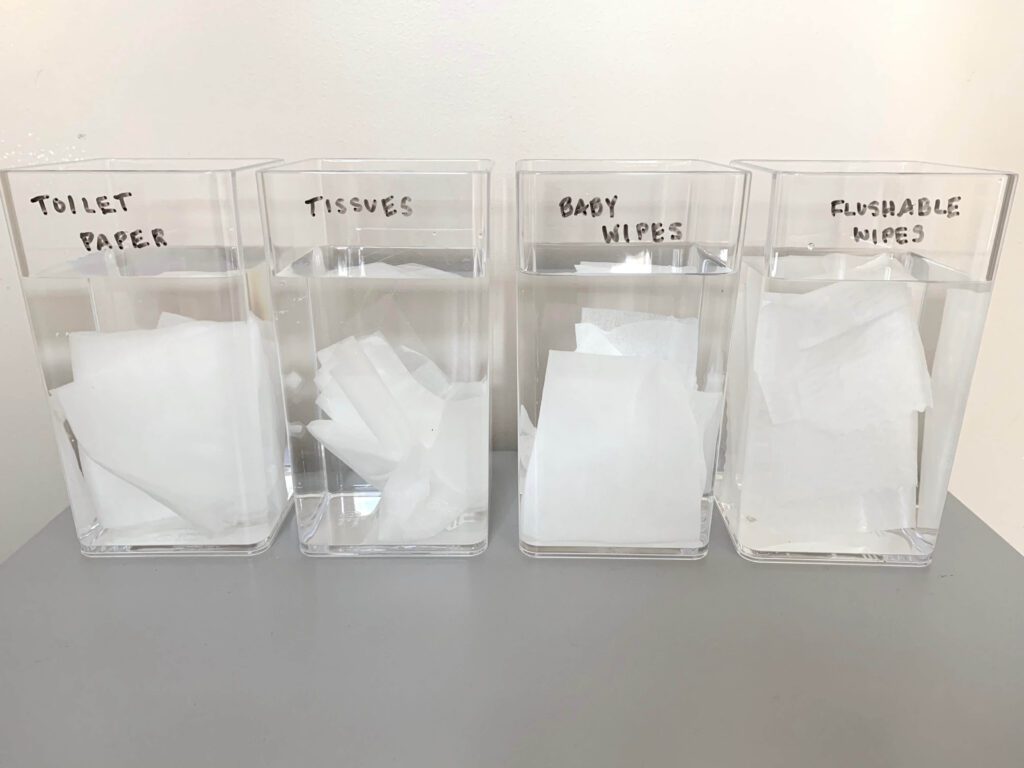
2 Hours Later
After just two hours, the toilet paper was already breaking down into smaller pieces. There was no change to the tissues, or the baby wipes. The flushable wipes looked promising, the water was getting cloudy and some very small pieces were beginning to break off.
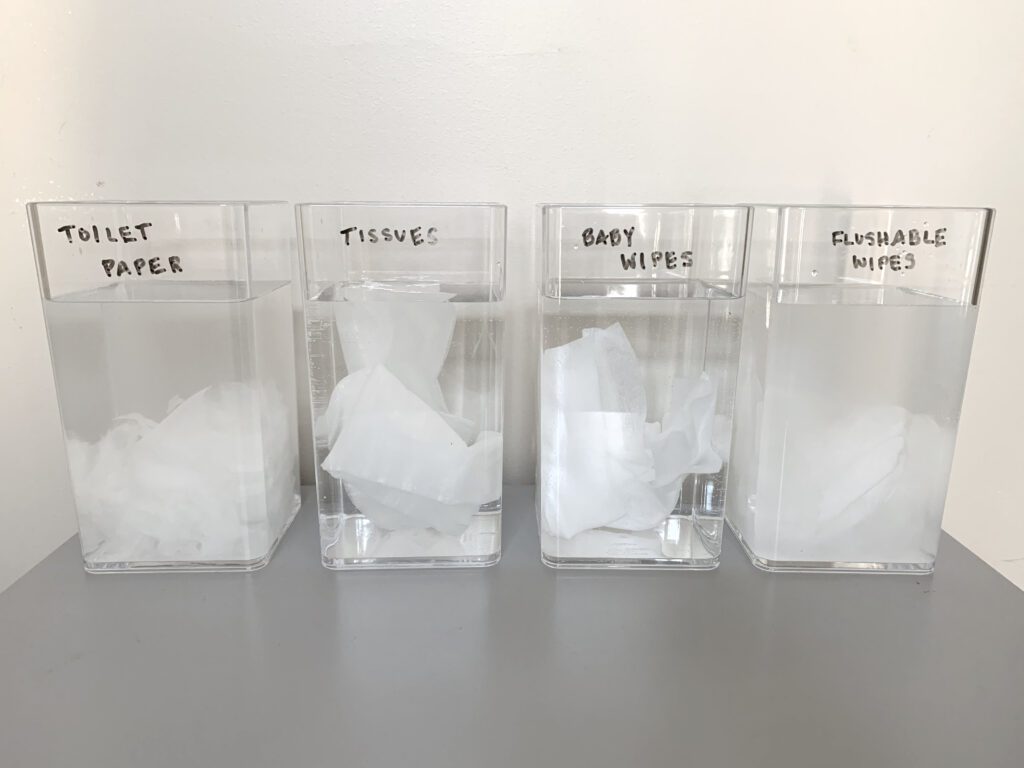
4 Hours Later
After four hours there was even more breakdown of the toilet paper. Still no change to the tissues or the baby wipes! And while the flushable wipes continued making the water cloudy, there was still a lot of solid wipe material in the container.
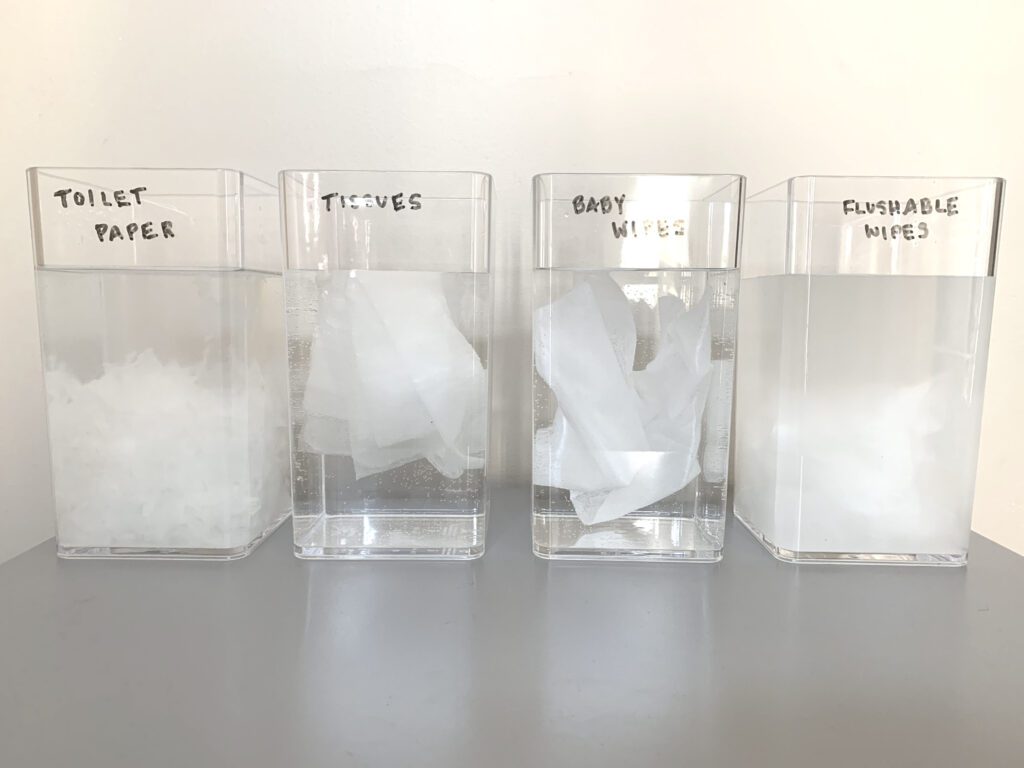
24 Hours Later
After a full 24 hours, the toilet paper had broken down into small pieces. There was still no change to the tissues or baby wipes. And the flushable wipes still had a significant amount of whole wipes in the water.
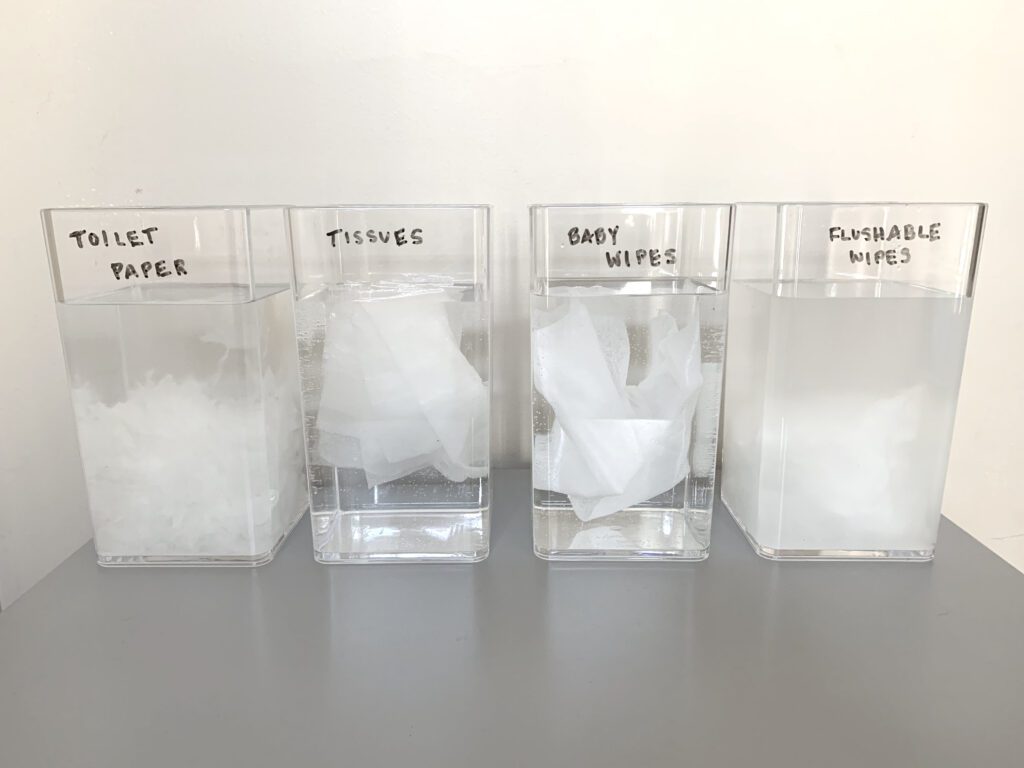
“Flushable” Wipes
What we ultimately found is the flushable wipes did not break down even after 24 hours in water. Toilet paper will begin to break down in as little as 20 minutes in water, but these flushable wipes do not compare. They could easily clog up either your pipes or septic tank, or collect and clog up a sewer system.
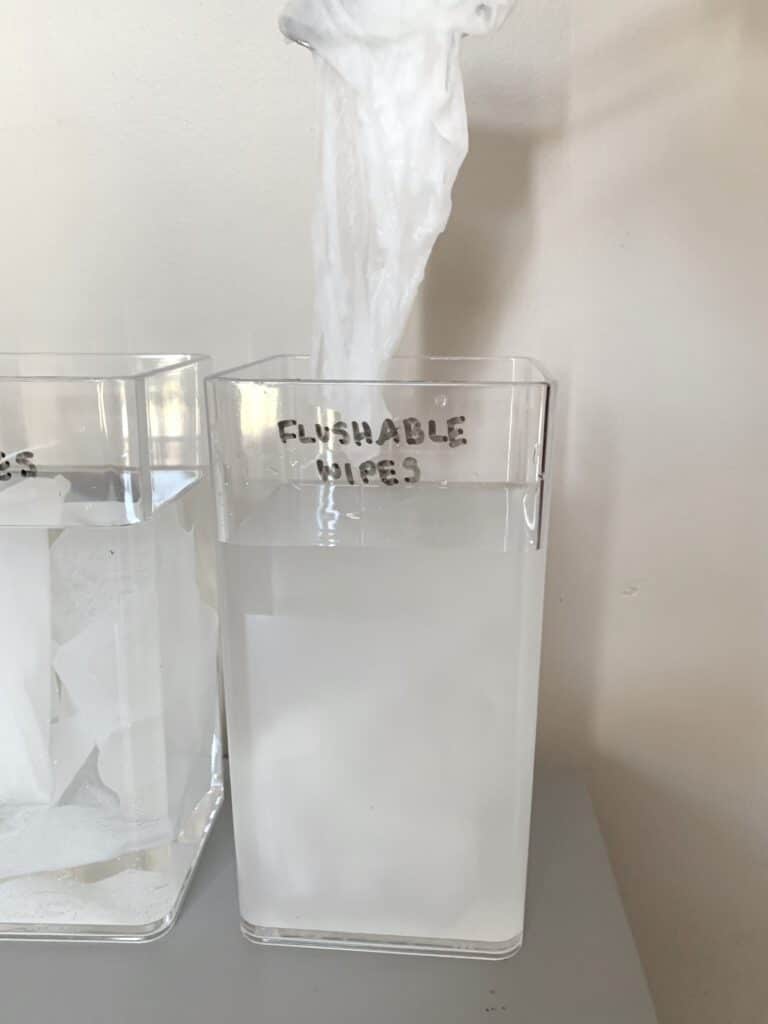
What Is Safe To Flush?
In order to be considered truly safe to flush, whatever you are sending down your toilet should quickly break up into small pieces that can easily pass through your pipes. If you have a septic tank, that material needs to be broken down even further. If your home is on a city sewer system then you want to be sure what you are flushing isn’t going to create a clog in the main sewers.
Tissues, baby wipes, and flushable wipes can collect and even accumulate with grease and fats that have been washed down drains as well. These clogs in our main sewers may need to be manually cleared, and can potentially cause backups into streets and homes.
Local Community Guidance
Both Spotsylvania County and Stafford County have put out guidance on what you should not be flushing into their local sewer systems. You can view more information here:
Spotsylvania County: Please Do Not Flush These
Stafford County: Good Flushing Practices Lead To Public Health and Sanitation
If you’re dealing with clogs in your home, give Trident Plumbing a call today at 540-642-0023 so that we can clear the clog and get things running again!
